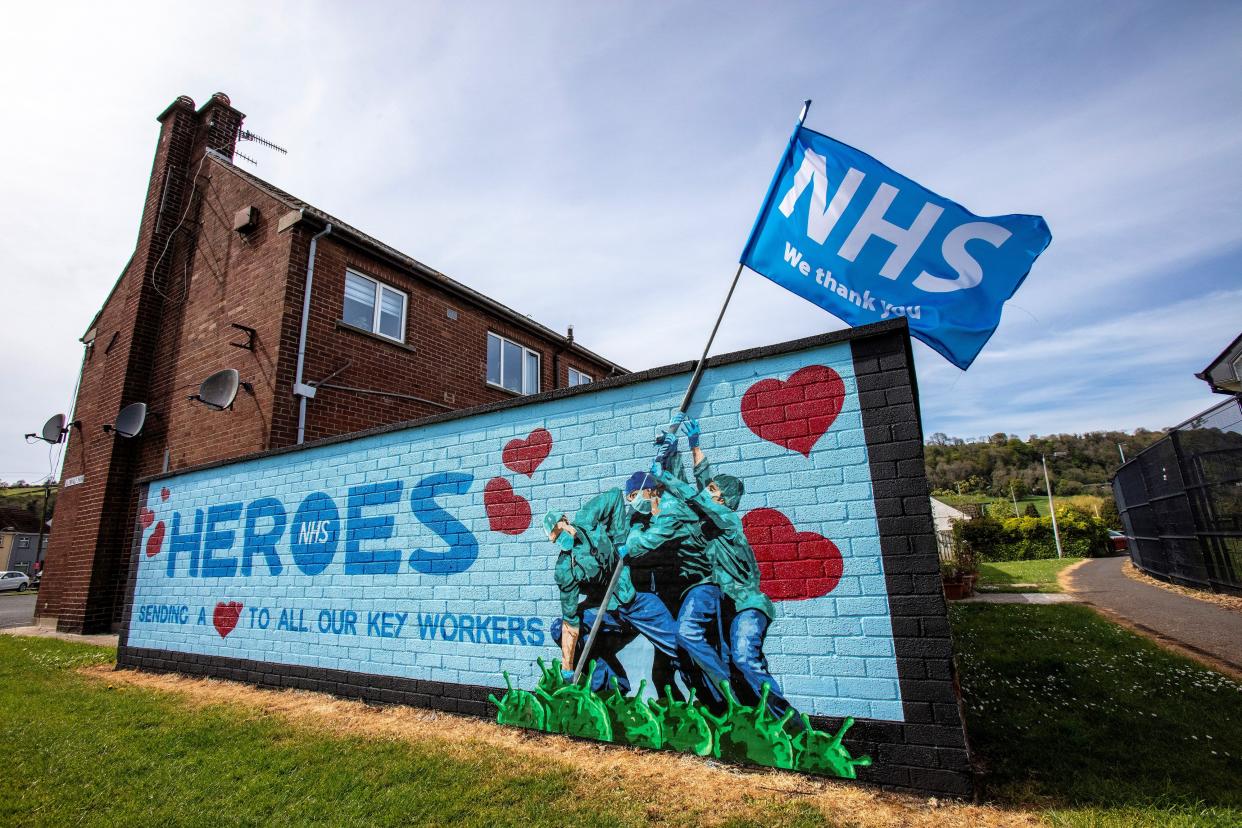Coronavirus: People in Northern Ireland will be able to meet in groups of six under lockdown plan

People in Northern Ireland will be able to meet in groups of up to six under the country’s plan for easing its coronavirus lockdown – although no dates for lifting restrictions have been revealed.
Groups of four to six people who don’t share a household will be allowed to meet outdoors while maintaining social distancing when measures are relaxed.
On Tuesday, Northern Ireland announced a five-point plan for exiting its lockdown, but no firm dates for the introduction of the measures were given.
It has followed Scotland and Wales by sticking to its own plan for lockdown – both Scottish first minister Nicola Sturgeon and Welsh first minister Mark Drakeford have publicly distanced themselves from the plan for England put forward by UK prime minister Boris Johnson.

The first step out of lockdown in Northern Ireland will allow groups of four to six people to meet outside, and will make provisions for drive-through church services and churches opening for private prayer.
Public sports facilities will also reopen, along with drive-through cinemas, while sports such as golf and tennis will be permitted.
Under the second step, groups of 10 people will be able to meet outdoors, and some libraries and open-air museums can reopen.
Latest coronavirus news, updates and advice
Live: Follow all the latest updates from the UK and around the world
Fact-checker: The number of COVID-19 cases in your local area
6 charts and maps that explain how COVID-19 is spreading
Step three will see groups of up to 30 people gathering outside and concert and theatre rehearsals resuming.
Socially distanced church services can happen by step four, as well as the resumption of competitive sport behind closed doors.
The fifth step will include the resumption of close physical contact sports, spectators at live events on a restricted basis as well as the reopening of nightclubs and concerts.
There is flexibility for pupils returning to school and increased use of public transport to move at different paces.
First minister Arlene Foster said she realised some people will be disappointed the road map does not have a timetable.
Watch the video below
"Many will want answers immediately around specific scenarios that impact them most directly," she told the Northern Ireland Assembly.
"Our road map won't answer every query – it provides an indication, which people can use in looking ahead and anticipating how the next weeks and months might evolve.

"Our restrictions have worked and they have and are saving lives. We are asking a lot of our people and we appreciate that the restrictions have health and wellbeing consequences too.
"We want everyone to be able to go out, visit relatives, socialise and enjoy everything this place has to offer. We need to get people back to work where safe to do so. We will get there. It will take time, but we will get there."
The Stormont Executive said that, as of 10 May, 33,440 individuals in Northern Ireland had been tested for COVID-19, with 4,149 laboratory-confirmed cases and 438 reported deaths.
It said that although overall case numbers are continuing to rise, it is at a slower rate than before.
It also notes a "gradual decline" in both hospital admissions and intensive care unit occupancy, reflecting a reduction in transmission of the virus and progression of the epidemic.

 Yahoo News
Yahoo News 


